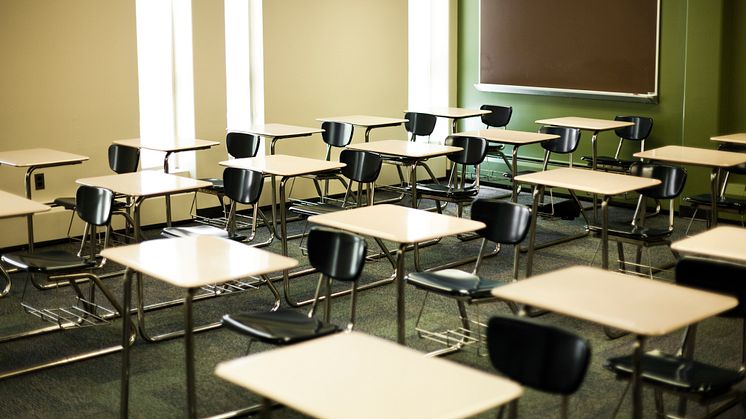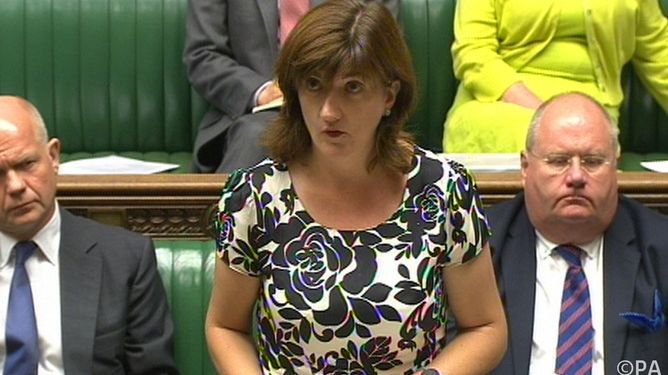
Press release -
COMMENT: Children at risk of extremism could fall through growing gaps in school system
Michael Jopling, Professor in Education, Department of Education and Lifelong Learning, Northumbria University, comments on the risk of extremism in school children for The Conversation.
With preventing young people from being radicalised high on the new Conservative government’s agenda, much attention is being directed towards schools' role in combatting it. But there are concerns that recent changes to the structure of the education system may have created gaps which have reduced the capacity of schools and local authorities to do this.
Ofsted’s chief inspector of schools, Michael Wilshaw, has written to the education secretary, Nicky Morgan, highlighting what he described as a “serious safeguarding issue” discovered during the ongoing monitoring of schools in Birmingham and Tower Hamlets where there were concerns that children had not been protected from extreme Islamist ideology.
The issue was the potentially high numbers of pupils whose names had been deleted from school registers following the fallout from the so-called “Trojan Horse” scandal, without the schools or their local authorities knowing where the pupils had gone. According to reports in the BBC, unannounced inspections of 14 schools in Birmingham and Tower Hamlets revealed that over 1,000 pupils moved from these schools between September 2013 and June 2015. The pupil’s destination was not clearly recorded in over 350 of these cases, which indicates the scale of the issue.
Wilshaw said that although schools and local authorities were mainly complying with their statutory duties, inspectors found that recording and reporting cases of children being removed from school were inconsistent. There was poor communication and coordination between schools and local authorities on individual cases – and systems for identifying and tracking pupils who leave independent schools (which include academies and free schools in some government definitions) were inadequate.
Local authorities don’t have all the tools
So where does responsibility for these children and young people lie, especially given the increasing numbers of academies and free schools outside of local authority control?
Most of the government’s guidance on safeguarding children focuses on issues which occur when a pupil is still on a school’s register. Children Missing Education, the statutory guidance for local authorities when pupils disappear, places the responsibility on local authorities for ensuring that children moving between schools or local authority areas remain in the system.
The rather vague guidance states that local authorities should check with each other and “share information in order to ascertain where a child has moved”. They should also “raise awareness of their procedures” with agencies working with children and their families, including the UK Border Agency and HMRC, so that they can help trace children who go missing.
School to school (S2S), a secure internet system, is available to transfer pupil information between authorities. However, as Wilshaw highlighted, current regulations do not require schools or local authorities to record or check the onward destination of pupils who go missing. He suggests that this makes it difficult to determine whether any of these children are at risk of “harm, exploitation or the influence of extremist ideologies” and recommends that the regulations be strengthened to clarify the responsibilities of schools and local authorities when children and young people go missing.
A deeper issue
The Department for Education has said in response that it will strengthen the guidance and amend the regulations about the information a school has to collect when a pupil is taken off its register. However, there is a deeper issue here, which goes to the heart of school governance in what is an increasingly fragmented education system in England.
A report on school oversight and intervention by parliament’s Public Accounts Committee report in January 2015 found that: “lack of clarity in the Department’s guidance has contributed to a situation where some local authorities do not understand their safeguarding duties towards pupils in academies”.
This was echoed in March by a report on academies and free schoolsfrom parliament’s Education Committee, which attributed the reluctance of local authorities to monitor safeguarding in academies to “the very strong messages that have been sent to local authorities more generally about not overseeing and meddling in academies”.
This reluctance is unlikely to decrease, particularly as the number of schools opting to become academies increases, or if those that are identified as a “coasting school” are potentially forced to become one. At the same time, expenditure cuts have affected the capacity of local authorities to monitor a range of areas, including child safeguarding.
Wilshaw may be right to argue for clearer regulations and to use the “Trojan Horse” affair and associated fears about extremism to highlight the issue of children and young people going missing.
Of course, there is no evidence yet that indicates that any of the 350 children missing from school registers in Birmingham or Tower Hamlets are either at risk or indicators of a larger problem. So whether, given their reduced capacity and resources, tighter regulations will enable local authorities to find out remains open to question.
Topics
Categories
Northumbria is a research-rich, business-focussed, professional university with a global reputation for academic excellence. To find out more about our courses go towww.northumbria.ac.uk
If you have a media enquiry please contact our Media and Communications team at media.communications@northumbria.ac.uk or call 0191 227 4571.










